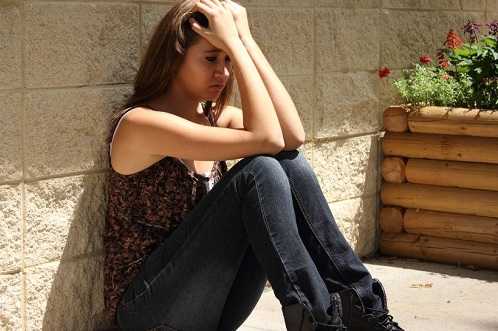Dealing with the death of a loved one is one of the most difficult things to do. No matter whether it is your beloved family member or dear friend, losing them is the hardest thing to experience. Everybody has various ways to deal with the death of a loved one. Some of them mourn deeply and some of them can act as if nothing has happened. I lost my beloved grandma last year and I’m still reeling from this loss so I’d like to share with you some different ways I tried to feel better. Hope, these tips will help you out.
1. Don’t give yourself a time limit to grieve
No one can tell you when you’ll start to feel great again. Don’t expect an instant relief! As I said, I lost my grandma last year and I’m still not feeling great. I thought that after 4 or 5 months I’d feel better, but there’s no predicting our thoughts or feelings, especially if you’ve never lost a loved one before. If you do not feel yourself snapping back instantly, you are not abnormal! Different people need a different amount of time. Take small steps to getting your life back on track.
2. Cry
Although this is one of the most obvious ways to deal with the death of someone close to you, many people don’t let themselves cry, since they think it can make them weak. But don’t stop yourself from crying it will not make you weak, it will help you release pent up emotions and feelings inside of you and will allow you to express your grief. Curl up in bed and cry your eyes out! If you have a person you are really comfortable with, ask them wrap you in their arms while you cry. But make sure you don’t fall into a deep depression, because it will be extremely difficult to pull yourself out of it. It may sound strange, but the relief you will feel after crying is worth it.
3. Take a break
I know that the death of a loved one makes you feel like the whole world has fallen apart and your life has stopped. Even though you need to grieve for a while, you also need to take a break from it and have some fun. After a month has passed, plan some fun time. Even if it is for an hour, you need to take time for you. Read a book or play a game, watch a movie or TV, or do something that can take your mind off of your loss. Don’t feel guilty for having a good time and laughing, the person who passed away would definitely want you to be smiling and happy again!
4. Talk to someone
Maybe you don’t feel like talking, but if you feel really bad, you will need to talk to someone about your feelings. You can talk to your family member or your friend. If you spill your feelings and emotions to someone and let them out of you, you will feel much better. Talk about all the happy, fun and silly things you miss about the person who passed away.
5. Talk out loud to your lost loved ones
This may sound morbid, but talking out loud to your lost loved ones is one of the best ways to deal with the death of a loved one. I usually talk to my grandma when I’m going through difficult times. I know she is not there and she can’t answer back, but I feel much better, because my grandma always helped me. I know she can help me, even though she is no longer there.
6. Think ahead about the hard days
Birthdays, anniversaries, Christmas, Easter, and other holidays are extremely difficult after you lost someone close to you. It’s important to know how you’ll react. Make sure you plan ahead these holidays so they don’t take you by surprise. If you know that you’ll be upset, take the day off of school or work, and tell someone close to you that you’ll be a wreck that day. I’m a type of person who deals better when my mind is busy, so I usually ask to work those days, or go on a shopping spree, or do anything I want just to keep my mind off of the hard day.
7. See a grief counselor
It’s not the same as “talking to someone” because a grief counselor is not just anyone. A grief counselor is specially trained to help people to cope with any feelings and thoughts they may have. It’s common for people dealing with loss to have unreasonable guilt, fall into deep depression, have intense feelings of anxiety or even suicidal tendencies. A grief counselor will teach you some techniques that will help you to feel better.
It’s important to express your grief, so don’t hold it all inside, since it could turn into something worse, like a depression or even alcohol or drugs intake. Allow yourself to grieve and look for the support if you need it. Do you know any other ways to deal with the death of a loved one? Share your thoughts, please.

